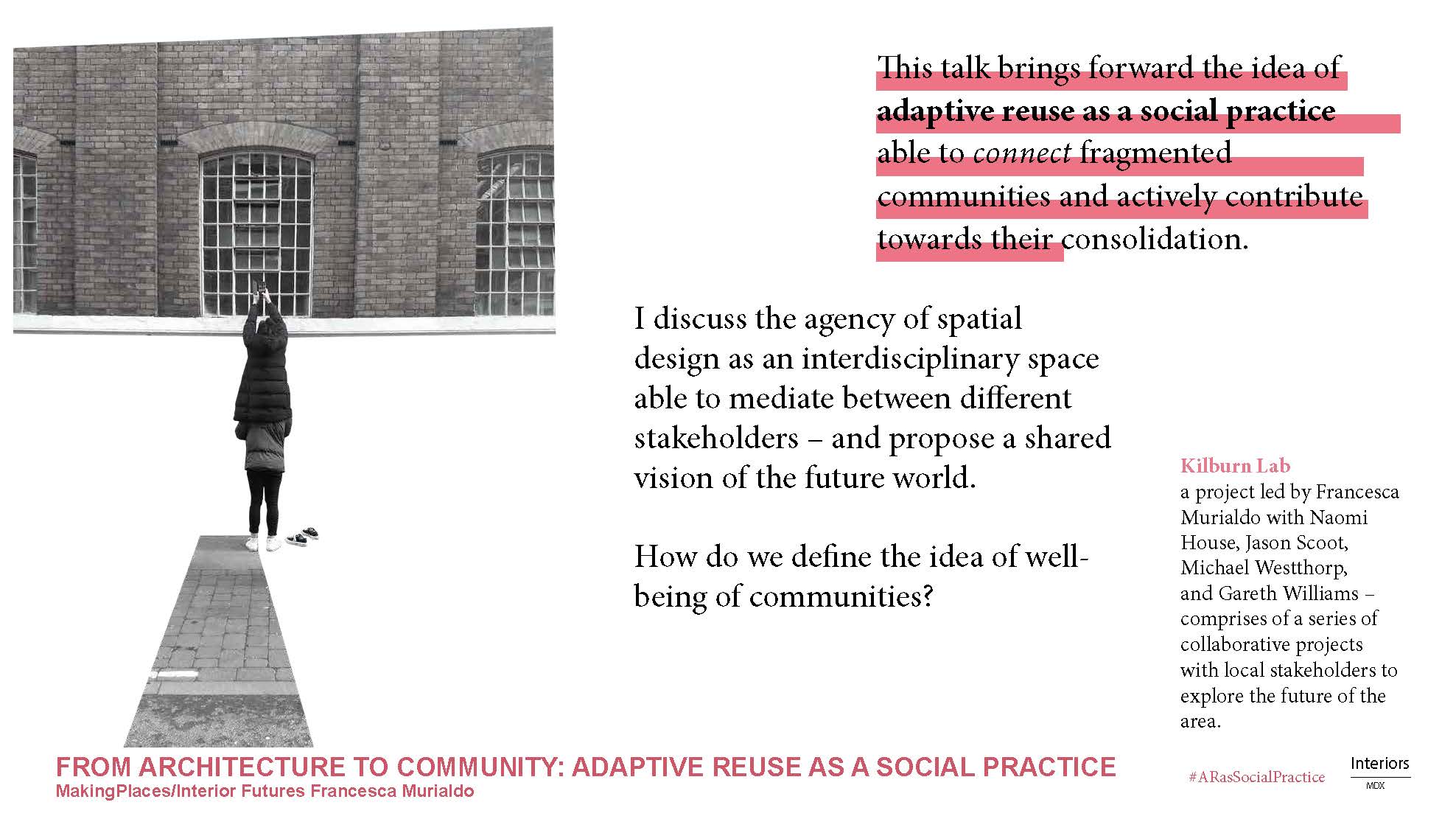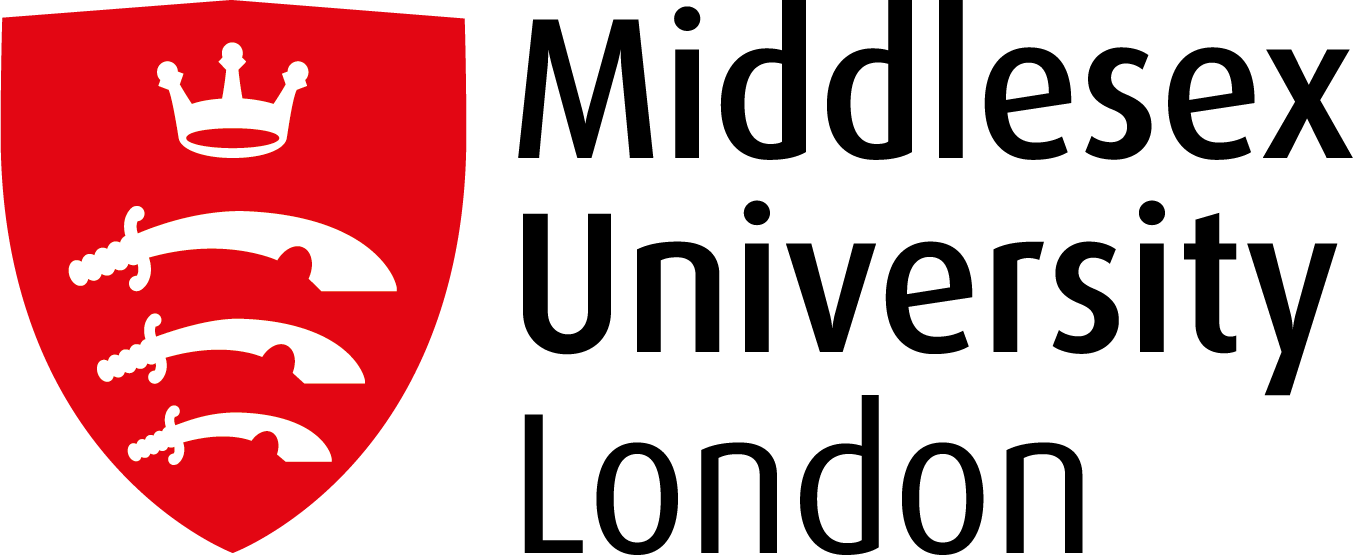Adaptive Reuse as Social Practice
09–24–1953

︎ International Conference on Design Futures 2022
︎ Politecnico di Milano will cooperate with Carnegie Mellon University and Tsinghua University
︎ 2-3-December 2022
This presentation introduces the concept of adaptive reuse as a means to bring together fragmented communities and contribute to their consolidation. Through Kilburn Lab, a collaborative project with local stakeholders, the presentation demonstrates how academic skills and competencies can positively impact community engagement and foster a sense of belonging. The speech also explores the agency of spatial design as an interdisciplinary tool that can mediate between different stakeholders and proposes a shared vision of the future world. The presentation proposes that spatial adaptive practices, such as re-owning and re-using community assets, are effective strategies for building community resilience and engaging with various needs and stakeholders. Ultimately, the approach is rooted in design activism as a social practice and an agent for change.
![]()
︎ Politecnico di Milano will cooperate with Carnegie Mellon University and Tsinghua University
︎ 2-3-December 2022
This presentation introduces the concept of adaptive reuse as a means to bring together fragmented communities and contribute to their consolidation. Through Kilburn Lab, a collaborative project with local stakeholders, the presentation demonstrates how academic skills and competencies can positively impact community engagement and foster a sense of belonging. The speech also explores the agency of spatial design as an interdisciplinary tool that can mediate between different stakeholders and proposes a shared vision of the future world. The presentation proposes that spatial adaptive practices, such as re-owning and re-using community assets, are effective strategies for building community resilience and engaging with various needs and stakeholders. Ultimately, the approach is rooted in design activism as a social practice and an agent for change.


